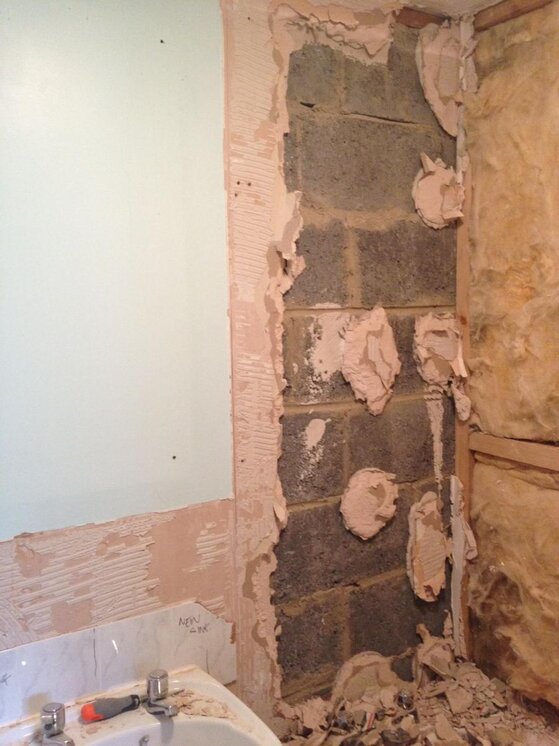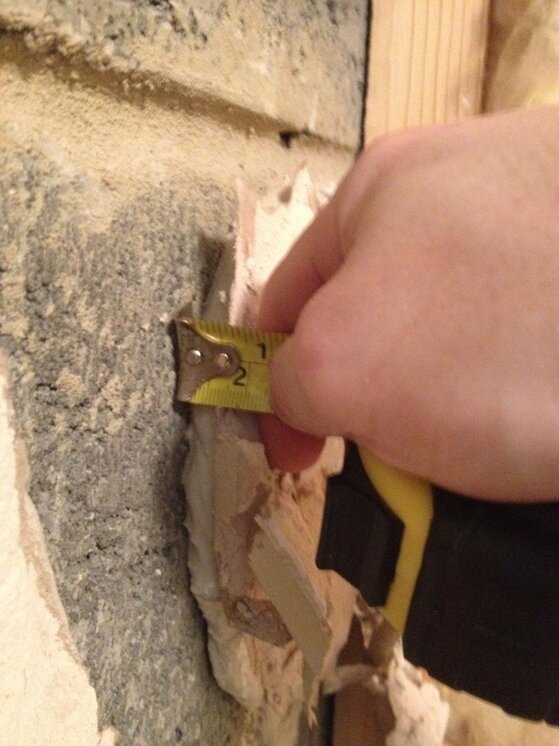P
Pegasus829
So I started ripping the old tiles off as well as the plaster board. Absolutely no water proofing at all and it was just standard gypsom board that was used everywhere else in the house. That would explain the mould that started to appear on the bedroom carpet a couple of years back! (The room is a bath with a mixer tap shower head so no wet room).
I'm going to be putting up a waterproof membrane over the stud work and then using Hardieboards over it. This is fine for the stud work however one of the sides is dry wall. It looks like something similar to NoNails was used to attach the previous plaster board to the wall. (See the following images)


The average (and I mean average...) depth of the adhesive is around 10mm and then around 15mm of plaster board stuck to it totalling 25mm of stuff stuck to the wall.
Should I spend what looks like half a day to hack all this off risking taking some of the blocks with it? My alternative is to lose 25mm of wall space, make a framework and attach it to the blocks and lay the new board sover the top (with membrane before hand). I think I can afford to lose the space at the opposite end of the bath as there is around a 25mm gap at the opposite end before the tiles etc.
Given your superior expertese which would you choose to do if you came across this problem?
(For those who notice the mould in the insulation I'm replacing all of the insulation! Oh and the suite is coming out tomorrow morning once the wife has moved to a friends for the week :yes:
I'm going to be putting up a waterproof membrane over the stud work and then using Hardieboards over it. This is fine for the stud work however one of the sides is dry wall. It looks like something similar to NoNails was used to attach the previous plaster board to the wall. (See the following images)


The average (and I mean average...) depth of the adhesive is around 10mm and then around 15mm of plaster board stuck to it totalling 25mm of stuff stuck to the wall.
Should I spend what looks like half a day to hack all this off risking taking some of the blocks with it? My alternative is to lose 25mm of wall space, make a framework and attach it to the blocks and lay the new board sover the top (with membrane before hand). I think I can afford to lose the space at the opposite end of the bath as there is around a 25mm gap at the opposite end before the tiles etc.
Given your superior expertese which would you choose to do if you came across this problem?
(For those who notice the mould in the insulation I'm replacing all of the insulation! Oh and the suite is coming out tomorrow morning once the wife has moved to a friends for the week :yes:
